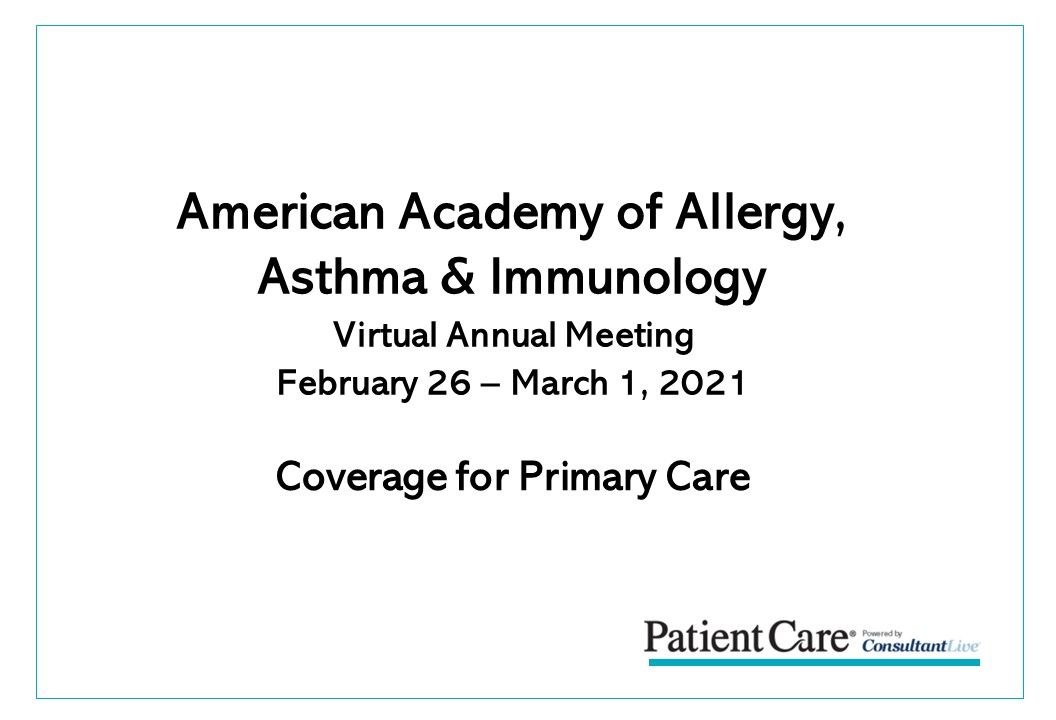- Clinical Technology
- Adult Immunization
- Hepatology
- Pediatric Immunization
- Screening
- Psychiatry
- Allergy
- Women's Health
- Cardiology
- Pediatrics
- Dermatology
- Endocrinology
- Pain Management
- Gastroenterology
- Infectious Disease
- Obesity Medicine
- Rheumatology
- Nephrology
- Neurology
- Pulmonology
AAAAI 2021 Virtual Annual Meeting: A First Look
Get a first look at key 8 studies to be presented at the upcoming AAAAI 2021 virtual meeting starting this Friday, February 26, 2021.
The American Academy of Allergy Asthma & Immunology (AAAAI) annual meeting this year is being held virtually starting February 26, 2021 until March 1, 2021. There will be over 100 live sessions and 50 recorded sessions will be accessible on demand.

The AAAAI has released information early on many of the abstracts and posters to be presented during the meeting and has highlighted new research represented by the following 8 studies that might be of interest for primary care physicians:
1. Poster #298. Allergy during breastfeeding. A new study found infants’ reactions to certain food allergens (ie, peanuts, eggs, and cow’s milk) during breastfeeding can offer insights into what food allergies may continue later in life.
2. Poster #L25. Commercial allergen products. New research found significant variances in the allergen composition, concentration, and dose per serving in commercial early allergen introduction foods.
3. Poster #L18. Masks do not impact SpO2. Researchers found that wearing a face mask, which helps prevent COVID-19 transmission and exposure, does not impact the oxygen saturation of the wearer, regardless of whether they have asthma or not.
4. Poster #299. Allergic reactions to sunflower seeds. In the largest case series of sunflower seed sensitization, researchers found that half of the patients with a clinical allergy to sunflower seeds experienced anaphylaxis.
5. Poster #L43. Ultraviolet may reduce disease severity. A study funded by the National Institutes of Allergy and Infectious Disease suggests that installing ultraviolet irradiation units in homes of children with asthma may reduce asthma severity and improve asthma control.
6. Poster #L5. Early introduction to peanuts. A new study found that while peanut allergy prevalence is still high among those with an early introduction to peanuts, that early introduction led to a 16% decrease in peanut allergy.
7. Poster #L2. Peanut immunotherapy for toddlers. In a new study of 50 peanut-allergic children aged 1-4 years, peanut sublingual immunotherapy was found to be effective and could provide sustained unresponsiveness.
8. Poster #033. Penicillin allergy and organ transplant. A new study found that organ transplant patients who have a penicillin allergy label are more likely to experience an adverse event when using non-penicillin antibiotics.
